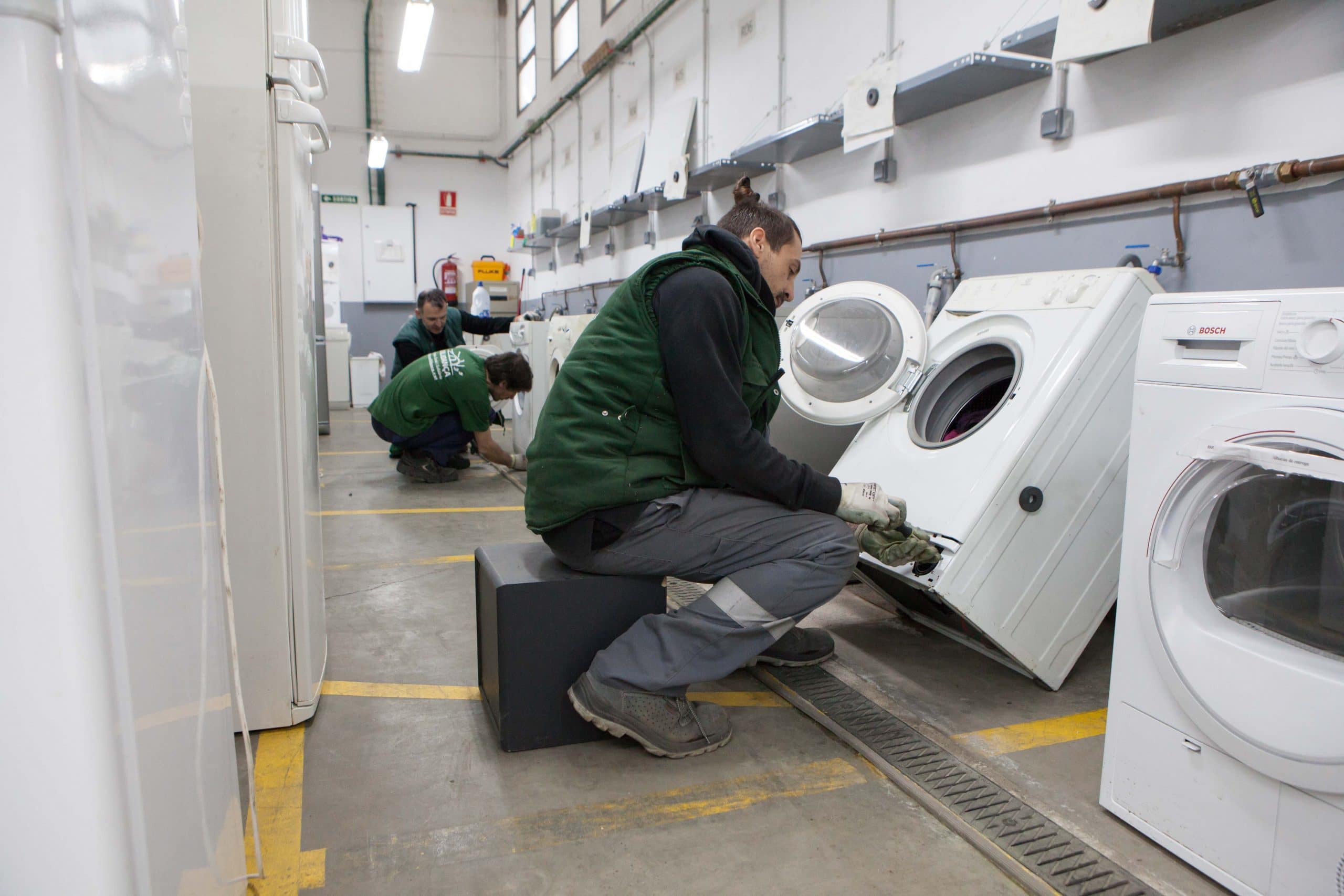A professional approach to the preparation for reuse[1] of WEEE[2] is essential both in terms of consumer safety and confidence when purchasing second-hand goods. It is also important because of health, safety and environmental issues, particularly considering the potential presence of substances of concern). Hundreds of social economy enterprises across Europe are active in this sector, giving a new lease of life to products and providing local job and training opportunities, including for people at risk of socio-economic exclusion. A number of these social enterprises (that RREUSE represents) have also developed recognised quality protocols and standards for the sector at regional and national level[3].
To enhance the quality and the quantity of second-hand goods going through a preparing for re-use process, it is also essential that waste electronics are collected and transported in a way which preserves their integrity. Allowing and facilitating preparing for re-use operators to have access to this material is then crucial in preventing re-usable goods from being prematurely recycled. The EU WEEE directive published in 2012 aimed to ensure that WEEE is collected and transported appropriately and that the WEEE management sector improves its quality in terms of respect towards the environment and human health. To help achieve this, the standardisation process has been used to help define ‘specifications for the collection and logistics associated with WEEE‘ (TS 50625-4), as well as ‘requirements for the preparing for re-use of WEEE’ (EN 50614).
The directive also opened up the possibility for the Commission to develop future laws, via implementing acts, laying down minimum quality standards for the management of WEEE at EU level, based in particular on standards developed by CENELEC. The Commission is currently investigating this possibility.
In this paper, and in cooperation with ECOS, RREUSE outlines that if minimum requirements for preparing for re-use activities are to be developed at EU level, they must be accompanied with more stringent rules on the collection and logistic of WEEE. This paper also argues that standards created by CENELEC, especially EN 50614 on preparing for re-use, should remain voluntary. Reasons include limited regulatory and financial support as well as technical details within standards themselves.
—————-
Download the publication here (PDF)
[1] Directive 2008/98/EC of 19 November 2008 on waste: ‘Preparing for re-use’ means checking, cleaning or repairing recovery operations, by which products or components of products that have become waste are prepared so that they can be re-used without any other pre-processing. More info on preparing for re-use operators can be found in Annex 1.
[2] Waste Electric and Electronic Equipment
[3] Quality protocols include Revise and ElectroRev in Belgium
Picture credit © Solidança


